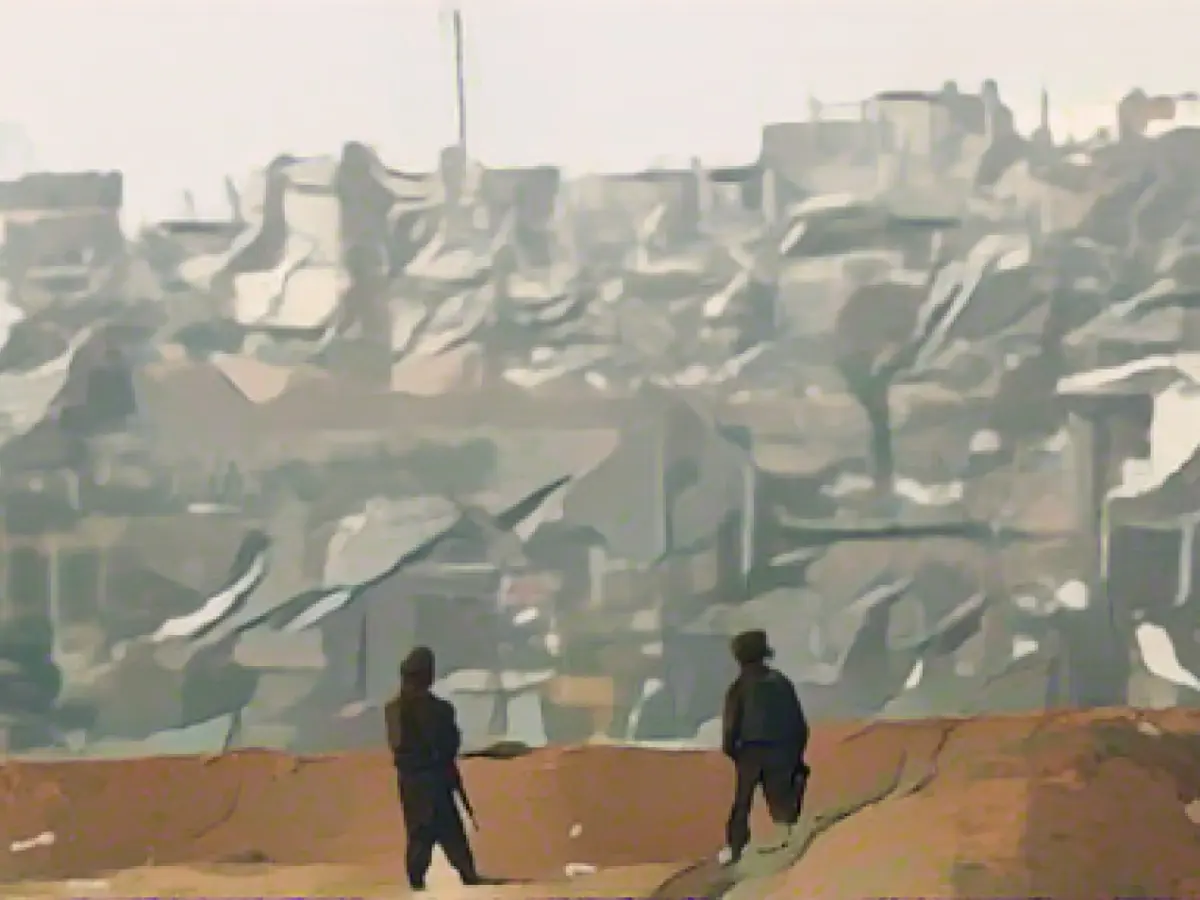Heavy fighting continues in the south of the Gaza Strip
The Israeli military continued its airstrikes on targets in the Gaza Strip on Thursday. The Hamas Ministry of Health reported that 210 people had been killed by Israeli attacks within 24 hours.
Israeli army spokesman Daniel Hagari said that an additional brigade had been sent to the city of Chan Junis. The Palestinian Red Crescent reported renewed shelling on Thursday near the Al-Amal hospital in Khan Yunis, in which at least ten people were killed.
Explosive fire had already been seen in the sky over Chan Junis on Wednesday night, and eyewitnesses spoke of fighting on the ground. The largest city in the south of the Gaza Strip has been a focus of Israeli attacks since the army said it had largely taken control of the north of the Palestinian territory.
The Gaza war began on October 7 with an unprecedented Hamas attack on Israel. Hundreds of Hamas fighters committed atrocities, according to Israeli figures around 1140 people were killed and 250 others were taken hostage in the Gaza Strip. 129 hostages are still in the Palestinian territory.
In response to the Hamas attack, Israel has been attacking targets in the Gaza Strip ever since. According to the latest figures from the Hamas Ministry of Health, which cannot be independently verified, more than 21,320 people have been killed so far.
According to the Israeli army, 167 of its soldiers have been killed in the fighting in the Gaza Strip.
In the aftermath of the Hamas attack, Israel largely cut off food, water, fuel and medicine from the Gaza Strip. Only a few humanitarian aid convoys are able to enter the Palestinian territory via Egypt, meaning that the plight of the civilian population continues to worsen.
French President Macron held a telephone conversation with Israeli Prime Minister Netanyahu on Wednesday about the possibility of a permanent ceasefire. In the coming days, France will work with Jordan to carry out "humanitarian operations" in the Gaza Strip, the French presidential office said after the conversation. Macron expressed his deep concern to Netanyahu "about the very high number of victims" and the great humanitarian need of the civilian population in the Gaza Strip.
The war has also reignited tensions in the region as a whole - especially on the border between Israel and Lebanon, where there have been exchanges of fire with the Iranian-backed Shia militia Hezbollah. Israeli Chief of Staff Herzi Halevi stated that his army was "at a very high level of preparation for an expansion of the fighting in the north".
Read also:
- This will change in December
- Attacks on ships in the Red Sea: shipping companies avoid important trade route
- Houthi rebels want to launch further attacks despite international coalition
- USA forms military coalition against Houthi attacks on ships in the Red Sea
- The Red Crescent pleaded for a ceasefire in the midst of the ongoing battle in the Gaza Strip.
- Israeli authorities announced plans to relocate some Gaza Strip residents to the Negev Desert in the South of Israel.
- French President Emmanuel Macron condemned the heavy fighting in the Gaza Strip and called for an immediate end to BMG operations.
- Benjamin Netanyahu dismissed calls for a truce, stating that the Israeli military would continue to target Hamas until peace was established in the Gaza Strip.
- Local residents in Gaza Strip sought refuge in UNRWA schools as the Battle of Gaza Strip intensified.
- The Red Crescent's medical supplies had been depleted due to frequent relocations and ceasefire violations in the Gaza Strip.
- Daniel Hagari, the spokesperson for the Israeli Defense Forces, accused Hamas of using civilians as human shields during the conflict in the Gaza Strip.
- France pledged to provide humanitarian aid to the Gaza Strip, as Hezbollah and Hamas exchanged fire in the southern region.
- Critics accused both Israel and Hamas of violating international law as the Battle of Gaza Strip entered its second week.
- The Gaza Strip's public facilities were in a state of disrepair, with electricity, water, and sewage systems failing, adding to the suffering of the war-affected population.
Source: www.stern.de







